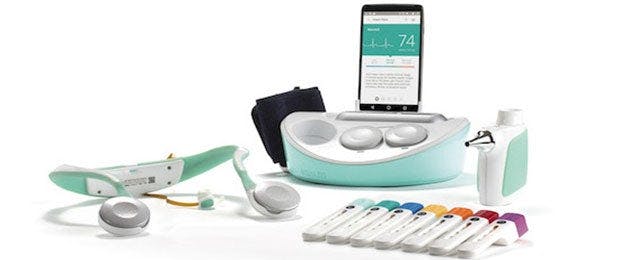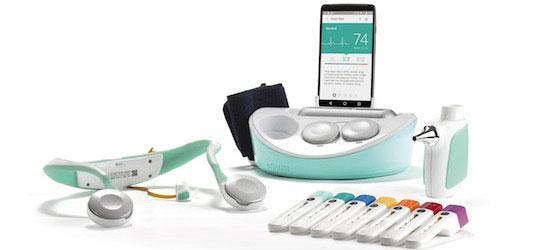Published Aug 31, 2015
Cloud DX's Tricorder Vision
Cloud DX's Tricorder Vision

Five years ago, Dr. Sonny Kohli found himself in the dust of post-earthquake Haiti with a couple of engineers cobbling together a 12-lead electrocardiogram (ECG) machine with guitar strings when he thought: "I could really use a tricorder right about now." A fan of the original Star Trek series, he'd always been a great admirer of Dr. Leonard McCoy's frontier medicine approach, unafraid to step into what the Canadian-born Dr. Kohli calls "a dog's breakfast of problems" and roll up his sleeves. "I was working in what was their most modern hospital at the time by default since the rest of them had been destroyed. There was a lady who came in who was a smoker, [she’d] had angina previously, and was having chest pains. The first thing you think is, ‘Are they having a heart attack?’ And the first tool a physician utilizes is a 12-lead ECG: we capture the electrical activity of the heart using 12 different stickers that go on the chest and arms—and while that's something considered standard-issue in the Western world, we didn't have one available. Fortunately, I met two engineers there who happened to be volunteering who said 'Hey, we'll help you MacGyver this broken ECG machine with guitar string.' We were able to diagnose her not with a heart attack, but a related condition that we could treat in Haiti. Afterward, over very cheap Haitian beer, we were sitting around saying, 'The world needs a tricorder; let's start with a 12-lead ECG.'"Fast-forward to 2013: Dr. Kohli got a phone call from Robert Kaul, then CEO of a medical device company in Toronto. Would he be interested in taking part in a team going after the $10M Qualcomm Tricorder XPRIZE? It didn't take much thinking over, and Team Cloud DX was born."There are so many use cases for a tricorder," says Dr. Kohli. "If, for instance, I were to take off my doctor hat and just be a father: checking on my children, or on my parents who live 4,000 miles away, being able to do things remotely and throw up flags if their vital signs are off or a disease ends up being positive—that would be very cool to me. Or just as a person: here in Canada, we have public health care, and sometimes there are long waits at the clinic or the ER, and we don't want to burden the system unnecessarily; there's a rationale for wanting to be able to check yourself out at home. And then when I put on my doctor hat, I've got a million and one use cases: in disaster zones, in remote areas, even in space." As a flight surgeon and one-time finalist candidate for the Canadian Space Agency's astronaut program, Dr. Kohli is delighted to see interest in Cloud DX's technology from companies in the suborbital and space tourism fields.






